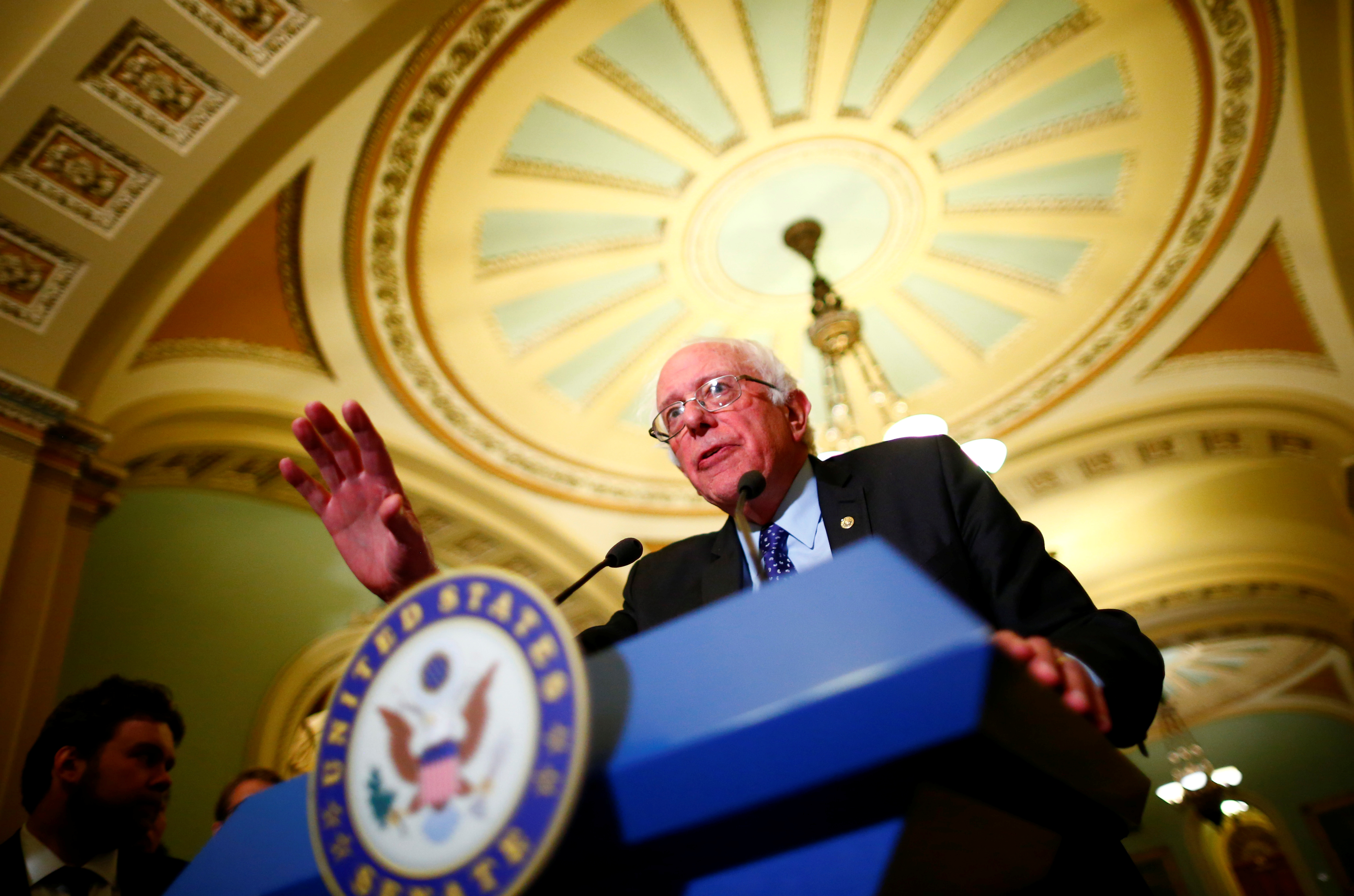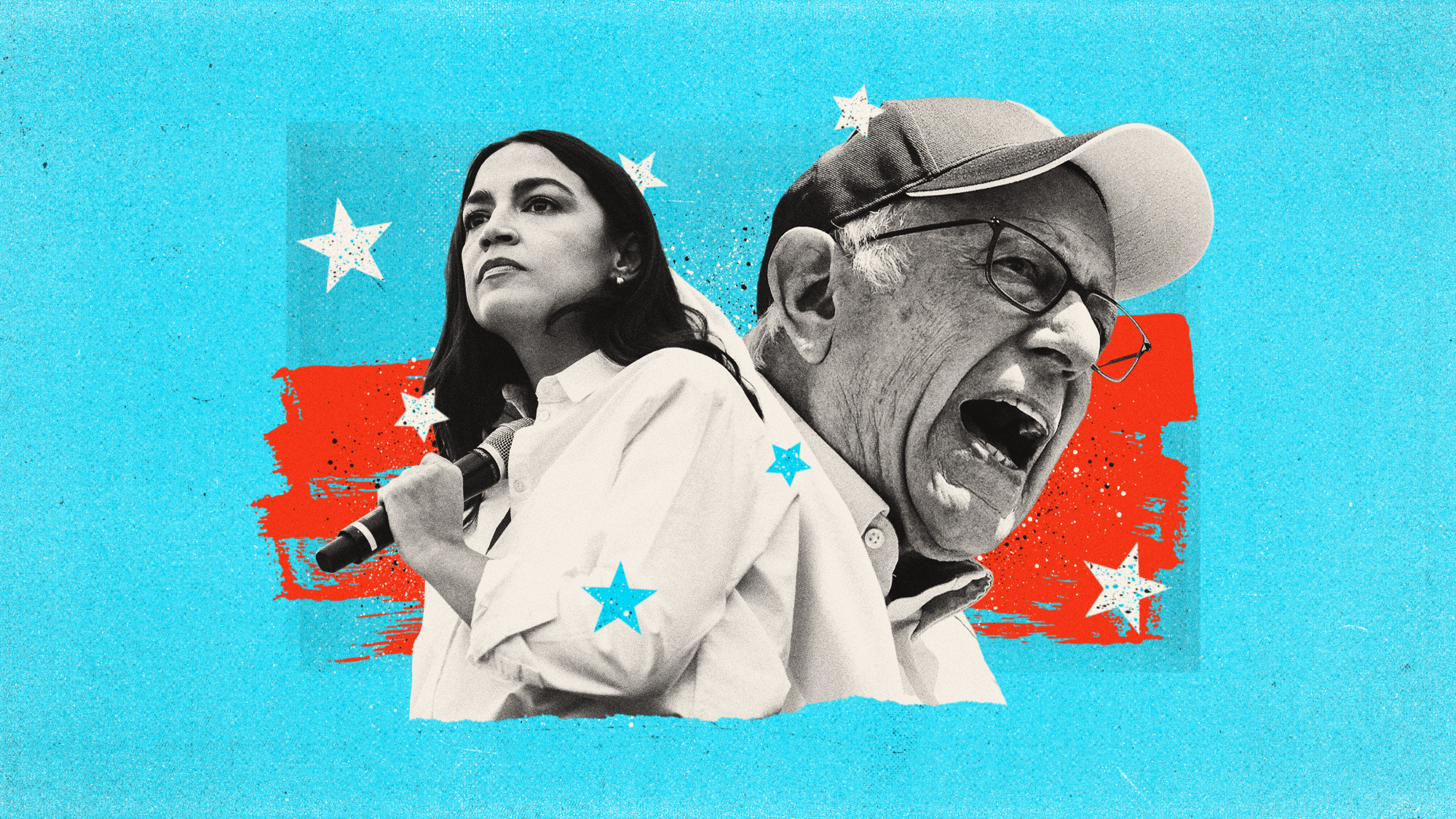What Bernie needs to win the presidency
This is progressives' moment. But they will have to seize it.


A free daily email with the biggest news stories of the day – and the best features from TheWeek.com
You are now subscribed
Your newsletter sign-up was successful
It's time to talk about the very real possibility of President Bernie Sanders.
I know, I know: The midterm elections are just barely over. And the 2020 presidential election is more than 700 days away. But the sad reality of the U.S. electoral system is that positioning over the 2020 election has already begun. And it seems likely that Sanders will run again, despite his advanced age, and that he will be by far the favored candidate for the American left — by simple process of elimination if nothing else.
Donald Trump is a weak, unpopular president whose party got wiped out in the midterms despite unemployment being at a 50-year low. Sanders consistently tops Trump's approval numbers by 20 to 30 points. He could legitimately beat Trump in a general election, as could plenty of other would-be Democratic nominees.
The Week
Escape your echo chamber. Get the facts behind the news, plus analysis from multiple perspectives.

Sign up for The Week's Free Newsletters
From our morning news briefing to a weekly Good News Newsletter, get the best of The Week delivered directly to your inbox.
From our morning news briefing to a weekly Good News Newsletter, get the best of The Week delivered directly to your inbox.
But if Sanders and the rest of the left is actually going to not only win, but govern, they will have to develop a will to power that they have so far failed to display.
When he announced his run in 2015, Sanders was regarded as an adorable joke by the political media. When his campaign rapidly caught fire, and suddenly he had a legitimate challenge to Hillary Clinton, Sanders was palpably nearly as surprised as anyone. His candidacy had been meant as a long-shot challenge mainly to raise the profile of his ideas, but it turned out he had tapped into a huge wellspring of discontent with centrist liberalism.
Sanders struggled to put his entire weight into the quest for victory. At a debate, he famously shut down a question about Clinton's private email server, saying "the American people are sick and tired of hearing about your damn emails!" It was a gentlemanly move, but it also left a potent line of attack unused, as the email issue would continue to dog Clinton throughout the election, becoming the single most-covered issue of the entire campaign.
Worse, Sanders barely even contested the South. As a barely-known old white guy from Vermont, it was obvious that he would struggle with the African-American vote and thus the Southern primaries. But he had no top-level black advisers, dragged his feet on bringing some on, and failed to make inroads in the complicated black political structure in the region. As a result, he got absolutely crushed in the South, losing by over 60 points in some states. (To be fair, he has since addressed some of these problems, and now posts his best favorability numbers among black Americans.)
A free daily email with the biggest news stories of the day – and the best features from TheWeek.com
This offers a marked contrast with how Barack Obama dispatched Clinton in 2008. Obama pressed the attack in every single state, rolling up big margins where he could and keeping his losses low where he could not. He did not hesitate to fight dirty, including deliberately leaving an individual mandate out of his health-care reform program, then savaging Clinton with lying mailers that recalled Republican attacks on Bill Clinton's failed health-care plan. (Of course, when it came time to write the ObamaCare bill, the mandate went back in.)
Sanders has all too often taken the high road. This is admirable. But admirable does not win elections. If he really wants to win the Democratic nomination, and the presidency, Sanders will have to get his hands dirty and really fight.
This is not just a Sanders problem. Much of the left suffers from the same vague high-mindedness and near-disdain for the grunt work of politics and governing.
David Dayen reports for The Intercept that in return for supporting Nancy Pelosi as speaker of the House, the Congressional Progressive Caucus has negotiated 40 percent of the seats on the five most powerful House committees: Ways and Means, Appropriations, Financial Services, Intelligence, and Energy and Commerce. (The logic here is that the CPC represents 40 percent of the Democratic caucus.) But the CPC is having trouble finding people to fill those seats. Older members are reluctant to give up their seniority on objectively weaker committees, and many incoming freshmen have expressed little interest in the complicated minutiae of tax policy or financial regulation.
When it comes to policy, centrist liberals are very often cringing cowards, if not straight-up trained circus seals who bark and clap their flippers on cue from their big-dollar donors. But in politics, they have an instinct for the jugular that the left largely lacks. They're already coordinating with big medical providers and insurance companies to try to stop Medicare-for-all. The former bankers and lobbyists who make up the New Democrat Coalition are licking their chops at the prospect of stacking those powerful committees — and keeping the lefties out — because that's where the money and power is.
The budget, tax policy, financial regulation — these are the pulsating guts of the American state. Centrists know how to become deeply familiar with the complicated inner workings of these committees, and use the influence thus gained to sell out the American people to big corporations. If the left wants to stop that from happening — let alone actually pass ambitious policy like Medicare-for-all — they are going to have to buy some elbow-length gloves and get to work.
I suspect the reason the left is so hesitant to grab for power is simple lack of practice. Historically, the left has often been violently suppressed by the state, and even left-liberal New Dealers were largely hazed out of the party in the 1970s and '80s. A whole generation of lefty thinkers and politicians internalized the idea that America was impossible territory for leftist organizing, if not completely irredeemable. As actually running the country passed out of imagination, symbolic and moral protests became the sum total of politics for many.
But Sanders and his congressional allies better get a knack for power, and quick. America and the world can't afford another decade of feckless centrists screwing everything up, or losing to Trump again. It's time to develop a little swagger.
Ryan Cooper is a national correspondent at TheWeek.com. His work has appeared in the Washington Monthly, The New Republic, and the Washington Post.
-
 What is the endgame in the DHS shutdown?
What is the endgame in the DHS shutdown?Today’s Big Question Democrats want to rein in ICE’s immigration crackdown
-
 ‘Poor time management isn’t just an inconvenience’
‘Poor time management isn’t just an inconvenience’Instant Opinion Opinion, comment and editorials of the day
-
 Bad Bunny’s Super Bowl: A win for unity
Bad Bunny’s Super Bowl: A win for unityFeature The global superstar's halftime show was a celebration for everyone to enjoy
-
 The billionaires’ wealth tax: a catastrophe for California?
The billionaires’ wealth tax: a catastrophe for California?Talking Point Peter Thiel and Larry Page preparing to change state residency
-
 Mamdani vows big changes as New York’s new mayor
Mamdani vows big changes as New York’s new mayorSpeed Read
-
 Bari Weiss’ ‘60 Minutes’ scandal is about more than one report
Bari Weiss’ ‘60 Minutes’ scandal is about more than one reportIN THE SPOTLIGHT By blocking an approved segment on a controversial prison holding US deportees in El Salvador, the editor-in-chief of CBS News has become the main story
-
 Has Zohran Mamdani shown the Democrats how to win again?
Has Zohran Mamdani shown the Democrats how to win again?Today’s Big Question New York City mayoral election touted as victory for left-wing populists but moderate centrist wins elsewhere present more complex path for Democratic Party
-
 Millions turn out for anti-Trump ‘No Kings’ rallies
Millions turn out for anti-Trump ‘No Kings’ ralliesSpeed Read An estimated 7 million people participated, 2 million more than at the first ‘No Kings’ protest in June
-
 Ghislaine Maxwell: angling for a Trump pardon
Ghislaine Maxwell: angling for a Trump pardonTalking Point Convicted sex trafficker's testimony could shed new light on president's links to Jeffrey Epstein
-
 The last words and final moments of 40 presidents
The last words and final moments of 40 presidentsThe Explainer Some are eloquent quotes worthy of the holders of the highest office in the nation, and others... aren't
-
 The anger fueling the Bernie Sanders and Alexandria Ocasio-Cortez barnstorming tour
The anger fueling the Bernie Sanders and Alexandria Ocasio-Cortez barnstorming tourTalking Points The duo is drawing big anti-Trump crowds in red states
